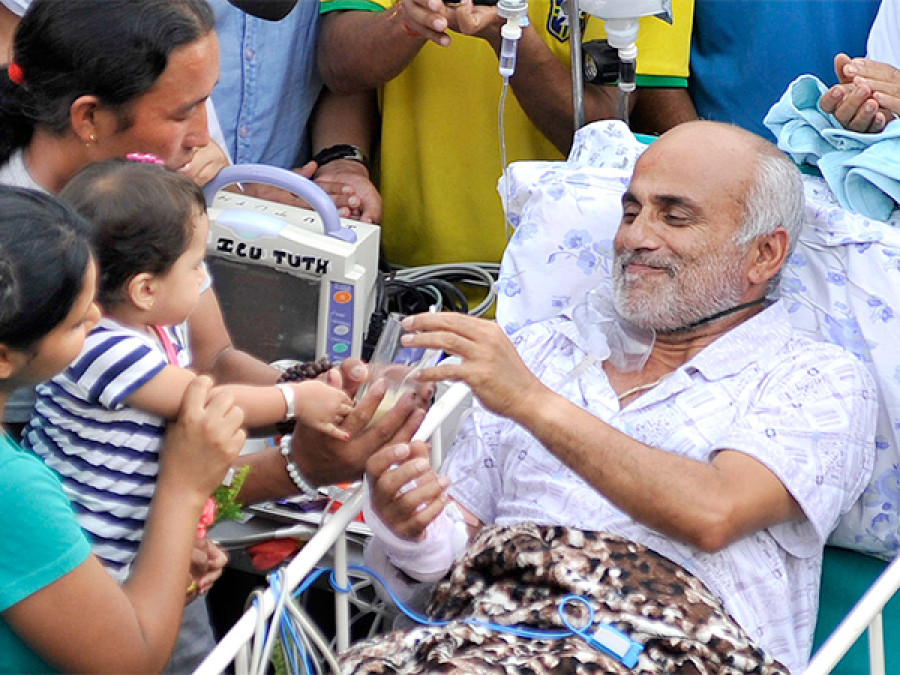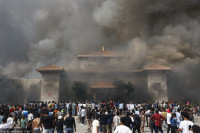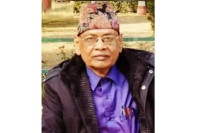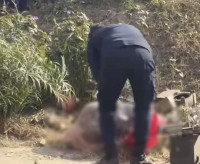Valley
Dr KC pins hope on apex medical body
Even as Dr Govinda KC ended his protest on Sunday after reaching an agreement with the government, KC and his team remain wary of government’s sincerity in implementing the deal.
Manish Gautam
Even as Dr Govinda KC ended his protest on Sunday after reaching an agreement with the government, KC and his team remain wary of government’s sincerity in implementing the deal. A centre piece of the agreement involves a high-level Health Profession Education Commission that would provide an overarching framework to introduce much needed reforms in medical education that Dr KC has been demanding for a very long time.
If implemented, the commission would oversee the production of quality human resources in the health sector while making health services accessible even in rural areas through a proportionate distribution of medical schools in the country.
Currently there are disproportionate numbers of private institutions centralised in urban areas, particularly in Kathmandu Valley. These institutions charge exorbitant tuition fees from medical students who in turn attempt to recover their investment by practicing in urban centres.
The government side has promised to have the commission endorsed in the next Cabinet meeting along with the appointment of the commission’s executive vice-chairperson.
The HPEC was envisioned by the former TU vice-chancellor Kedar Bhakta Mathema-led committee that was formed after Dr KC’s previous fast-unto-death protest.
The commission will be chaired by the prime minister and will be spearheaded by executive vice-chairperson, the Mathema committee has recommended in its report submitted to the Cabinet.
“This is the first systematic effort to regulate and monitor medical schools in the country,” said Dr Mathema. “This commission will have the authority to regulate the medical programmes run by various other universities.”
Working as the main regulatory body in medical education, the commission will conduct a common entrance test for all medical institution as previously provided in regulations, according to Mathema.
The draft policy prepared by the Mathema committee has mandated that each student should take this common entrance and score at least 60 percent to get into the colleges for MBBS.
The 25-member commission will be supported by six directorates: Standards and Criteria, Accreditation, Planning and Coordination, Academic Innovation and Research, Examination and Alternative Graduate Medical Education.
As criticism of various councils that regulated Health sector education, including Nepal Medical Council, Nursing Council and Health Professional Councils culminated for their inept handling of issues under their purview, the idea of forming an apex body began to take shape among experts who were frustrated by the lack of reform in medical education.
As a matter of standard practice globally, medical and other health professional councils regulate the conduct of doctors and medical staff registered with them, according experts. But in Nepal the focus was on allocating seats to private institutions.
“The fundamental duty of Nepal Medical Council would be to regulate doctors. However, it is more interested in allocating medical seats. And this too has been much controversial as many members have been alleged of taking favours from private medical schools,” said Dr Arjun Karki, former VC of Patan Academy of Health Sciences and a member of Mathema-committee.
Dr KC and his team are hoping that the commission, once formed, will address the gaps in the current system.




 14.12°C Kathmandu
14.12°C Kathmandu










